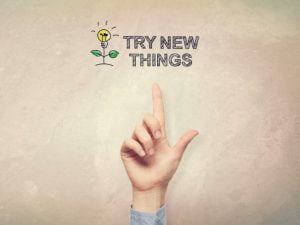Chronicles of a deaf Audiologist
Rehabilitation beyond hearing aids and cochlear implants: lipreading instruction, brain/auditory training and communication strategies.
Success for Hearing Better
HEARa is dedicated to the idea that people need the right information, at the right times, to be successful with hearing loss. HEARa’s mission is to reach out to adults with hearing loss and say—keep going. Learning about your hearing loss should be a lifelong process.
Areas of interest for hearing improvement
Choose an area of interest to explore ways to improve your hearing
From the chronicles
Even people with normal hearing benefit from auditory training
Processing speed affects our ability to hear in noisy listening environments, even for people with normal hearing. I emphasize this even for people with normal hearing, because some people with hearing loss believe that hearing aids alone should provide the benefits they are looking for. But even older adults with normal hearing have difficulty in […]
Listening fatigue in children with hearing difficulties
Around 60% of the school day is spent listening. For children with hearing difficulties, there’s an invisible, yet significant, challenge at play: listening fatigue. The 3-minute video below explores signs and symptoms of listening fatigue, and offers solutions for parents and educators.
Hearing aids without auditory training is like a dog walk without a dog
Without my dog, I’d skip walks when it’s difficult, missing out on exercise, sunlight, and dog joy in the snow. This is what life would look like: Similarly, background noise makes it difficult to hear. Without auditory training, people may avoid noisy environments altogether. Auditory training uses structured exercises to help the brain hear […]
Learn how to read lips No. 34
Can you read lips? Some people seem to have natural ability. Whether you have that natural ability or not, it helps to review some basics first. Getting a little background information (such as which sounds look alike and how that can help you to make educated guesses) can make learning lipreading a lot easier. Here’s […]
Learn how to read lips No. 33
If you’re learning about lipreading, it helps to review some basics first. Getting a little background can make learning lipreading a lot easier and save you some hassle. Here’s an example in a short video (23 seconds!): Check out my free Lipreading Challenge on YouTube to quickly learn key lipreading concepts. Just 90 minutes […]
Hearing aid regret: why waiting years can cost you
Most people wait years to get hearing aids. In the meantime, it’s not uncommon to lose confidence in communication abilities. When you’re unsure about keeping up in conversations or worry you’re not coming across as interesting or witty, you might find yourself hanging back from social stuff. (I know I don’t feel interesting or witty […]
Learn to read lips No. 32
Anyone can learn to read lips, if the difficulty level is just right. The best way to make it easier is to know the topic. If you’re the talker and you suspect the listener is struggling, tell them what you are talking about. If you’re a listener, ask for the topic. “I must admit, I’ve […]
Missing Word Endings in English?
Missing the ends of words in spoken English is very common, especially when listening is challenging. Here are the main reasons: Word endings are quiet and fast. In English, the ends of words often carry soft sounds (like s, t, d, f, k). These sounds are lower in volume, brief, and can easily get lost […]
Learn Lipreading No. 31
When the difficulty level is just right, anyone can learn to read lip movements and mouth shapes. The key is practice. Try this one: If you want more practice, check out my free Lipreading Challenge on YouTube. The Challenge offers 10 lessons and includes content on lipreading theory and lots of opportunity to practice. […]
Train your brain to hear faster, at any age
When it comes to processing speed, you are not stuck with the factory settings. Auditory processing speed affects how well you can “keep up” with conversations in noisy listening environments. But you can improve processing speed with auditory training! If you can keep up with the conversation more easily, your listening effort goes down. […]





